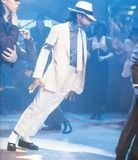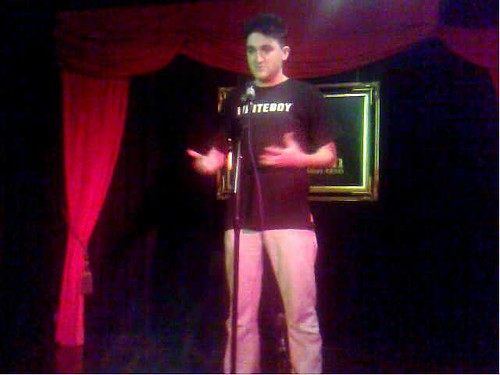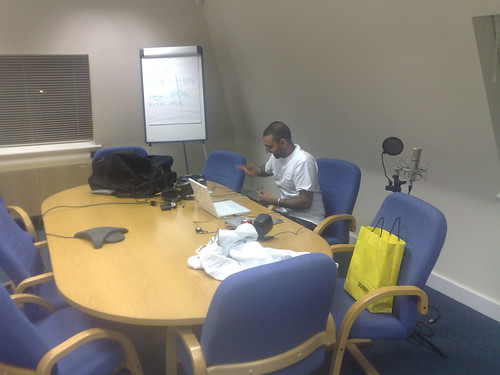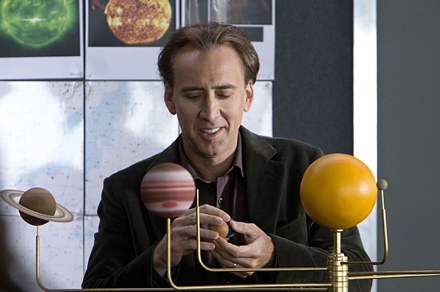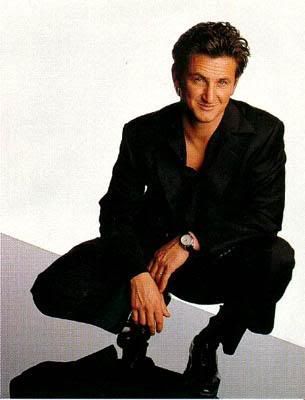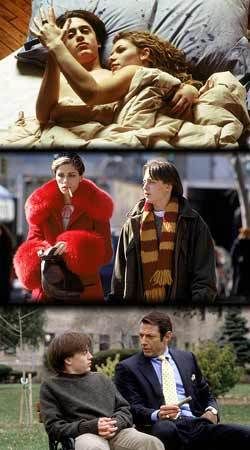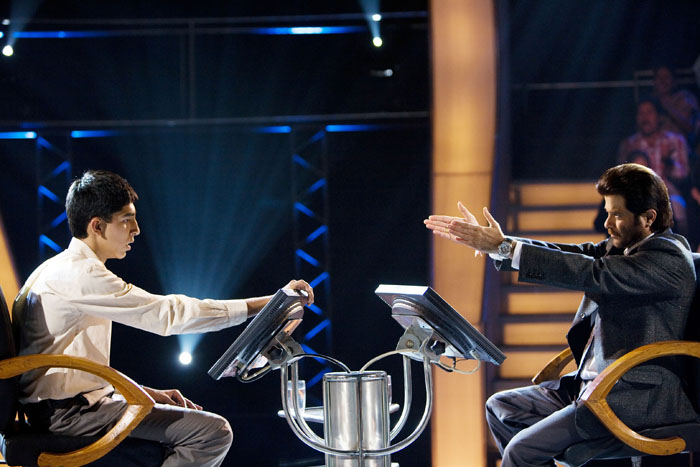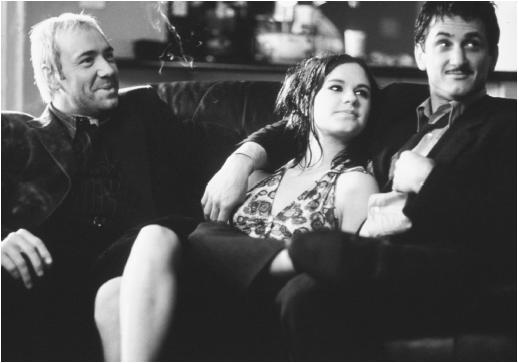Excerpt from The Blood Poets: A Cinema of Savagery, vol. two, "Millennial Blues," by Jake Horsley
If the eye could see the demons that populate the universe, existence would be impossible.
—
The TalmudDemons come in all shapes and sizes; they can be metaphor or metaphysic, troll or goblin or gremlin or vampire, werewolf or poltergeist, serial killer or zombie. But, whatever they are, the horror film is a washout without them. Very few movies, horror or otherwise, have endeavoured to deal with demons in the true, theological sense of the word—that is, the inverse of angels, spiritual (therefore invisible) beings that populate the Earth and meddle in the affairs of men, specifically, to possess his body and/or torment his soul. Adrian Lyne’s overwrought but genuinely terrifying thriller,
Jacob’s Ladder (1991), is the only, outstanding case I know of of a Hollywood mainstream movie (until
Fallen, that is) dealing with “the problem of demons,” more or less directly and (what’s more) intelligently. The fact that, by the end of the movie, the whole story has proven to be no more (but also no less) than the hallucinations of a dying man does little or nothing to detract from the film’s intensity (though it may undermine its integrity somewhat). This is, after all, the story of one man’s soul, and its battle to come to terms with the life it has lived, to overcome the demons of the past that refuse to let it go. Jake’s doctor, played by Danny Aellio, quotes Eckhart on the subject:
The only thing that burns in hell is the part of you that won’t let go... Your memories, your attachments; they burn them all away. They’re not punishing you, they’re freeing your soul. If you’re frightened of dying and you’re holding on, you’ll see devils tearing your life away. But if you’ve made your peace, then the devils are really angels freeing you from the Earth. It’s just a matter of how you look at it, that’s all.Although as a thriller, Jacob’s Ladder appears to be little more than medieval-gothic/new age hokum, at a more esoteric level, the film is surprisingly, at times disturbingly, persuasive. The writer, Bruce Joel Rubin (who went on to write the insipid Ghost and the loopy Deep Impact ), has obviously taken the time to research his subject, and the film achieves an atmopshere of occult menace and paranoia such as few horror films ever come close to (Polanski’s The Tenant, though a more obviously psychological thriller, is one of the few). Lyne’s direction is characteristically unimaginative, slick and assured but lacking either subtlety or sensitivity. Yet his commerical touch here (Lyne is yet another English filmmaker trained in advertising) is more suited to his material than in his other, uniformly lousy sex-orientated films (Flashdance, 9½ Weeks, Fatal Attraction, Indecent Proposal). He shows a horrifying flare for depictions of demonic presences and hellish landscapes, and the monsters here, which are the monsters of the protagonist’s mind—are amongst the most appalling ever put on the screen.
Lyne’s lack of empathy as a director is compensated for (as it isn’t in his other films) by the presence of Tim Robbins in the lead role of Jake. It’s Robbins’s first major role, and although he doesn’t do anything really suprising here, he’s sympathetic enough in what amounts to a difficult part (like Harry Angel, Jake is the fall-guy), and his proficiency carries the film along. The story concerns not merely demons of the spiritual kind, in fact, but also of the political and technological variety: it’s about a secret mind control drug used on American troops in Vietnam, designed to bring out the savage, aggressive side of the psyche (to tap into the liminal part of the brain?) and to turn the soldiers into “unstoppable killing machines.” The drug proves too effective by half, however, as even the most miniscule doses turn the troops into homicidal maniacs who tear into anything in sight, including each other. What’s worse, a side-effect of the drug is the onset of intense hallucinations, and a kind of sickly, encroaching paranoia. The survivors (of which Jake is one) suffer from the conviction that they are being persecuted by inhuman forces, and literally see demons on every side.
The trouble with the film’s resolution (that Jake is in fact dead) is that, if all this is just a dying man’s dream or vision, then how are we supposed to take it? As a creation of his own mind, or as a projection of a future which he might have lived, had he survived? The film seems to want to have it both ways. After all, we’ve watched the whole movie taking it to be “true,” then, in the last few minutes, we are asked to accept it as a dying man’s fantasy. Obviously, the first hundred minutes far outweigh the last two, no matter how much of a “revelation” they may be. And in actual fact, the last scene is a bust, anyway, because it doesn’t add anything to the film, really, but only takes (or attempts to take) everything we’ve just seen away from us. The film closes with a rather lacklustre caption informing us that, “the hallucinatory drug BZ was used in experimentation on soldiers during the Vietnam war. The Pentagon denied the story.” This—the fact of mind control experimentation by the government—is a reality that I trust most discerning American citizens are aware of by now, however dimly; but the film itself offers us no specifics, no authentic details, no single reason for us to take it as factual. The case it presents us with (even if it hadn’t just been exploded as “fictitious” by the film itself) seems flaky, not because it’s far-fetched or exaggerated (anything but, I fear), but simply because it is insufficiently well-researched, and therefore seems to lack plausibility. Actually, the whole script is a mess, because it seems to be unsure itself, as to whether the demons are an hallucination caused by the army drug, or whether the whole army-drug story is just an hallucination created by the demons, or whether it’s all just a metaphor anyway, created by the human mind, as it prepares to face its annihilation. Etc., etc...
Still, to a large extent, this chaotic lack of structure, of coherent intentions, works for the film and not against it, because it creates an appropriate level of uncertainty and mental panic in the viewer, provided of course that he’s prepared to suspend his disbelief and go along with the action, at a more emotional level; which is where the infernal presences and nightmare visions come in. Jacob’s Ladder is one of the very few recent movies (perhaps the first since The Manchurian Candidate) that successfully describes, or evokes, something of the despair, dread, paranoia and outright horror of modern life, in the age of psychological/germ warfare and shadow governments. It may even be that, with this film, “covert operations” became the modern version of “occult forces,” hence the use of theological terminology here meshes almost seamlessly with the espionage-paranoia plot. Jacob’s Ladder is an outstanding film of the ’80s, because it brings two very distinct kinds of horror together into a single nightmare: the nightmare of control. This effectively combines the ancient fear of possession (i.e., demons) with the modern fear of corruption (i.e., evil men, or government).
Jacob’s Ladder is like an update, for TV generations, of the Frankenstein myth. The hidden forces of the American government, and their Nazi-like doctors (standing in for the old Baron), are never seen in the film—as befits their covert nature—but their presence is certainly felt. No longer working to create life, modern science is now dedicated to conquering the human mind, to turning man into a machine that can be controlled and deployed, like a living weapon. And of course, in the process of harnessing this forbidden knowledge, the demons of the psyche are unleased. Once unleashed, these demons (like Frankenstein’s monster) cannot be placated, they can only be confronted. Knowledge, science, technology, in this myth they all equal disaster. In Lyne’s film, mankind itself, represented by the shadowy, omnipotent but wholly corrupt powers of the Pentagon, has become the modern Prometheus; while society, as the laboratory in which these infernal powers-that-be operate, has become the arena where the unspeakable consequences unfold. It has become Hell on Earth.
Jacob’s Ladder is an authentic apocalyptic vision of a society on the brink of devouring itself, of succumbing to its own insanity, and being overrun by its own demons. Like its protagonist, it walks the razor’s edge between madness and illumination, between paranoia and heightened awareness; and the awful, unthinkable visions it conjurs up are—far from being the deranged rantings of a diseased mind or mere chimera summoned up by blind hysteria—images of things to come. The Vietnam war was a bizarre and covert kind of sociological experiment, as much as it was a bid for power. Drugs were used (on both US and Viet Cong), not only in an insane attempt to win the war, but, more disturbingly, in order to test their properties and discover more about the workings of the human mind, ways in which it might be controlled, manipulated, reshaped, destroyed, and to discover just what the human being was capable of. The war itself was unlike any other war before it or since; none but the very few know what really happened there, or why, and those few aren’t talking.
For a Hollywood horror fantasy,
Jacob’s Ladder draws on some pretty painful home truths. Its use of the supernatural, as the only feasible way to account for, portray, and above all do justice to, the kind of organized evil and insanity which government has become, seems to me to be neither arbitrary nor unjustified, but genuinely inspired. The human psyche is a dark and dangerous place, alright, maybe not unfathomable but certainly as-yet-unfathomed by modern man. Science and psychology, when in the service of governments, tend to plunder and pillage in precisely the same spirit as army troops in a foreign land—they are there to conquer, not to comprehend. The unmapped territories of Heaven and Hell, which in Rubin’s script are suggested to be strangely synonymous, are like areas of the human soul which we have been unable, or unwilling, to recognize in anything but metaphorical terms.
Jacob’s Ladder literally brings the demons of the Vietnam war home to us, and makes no bones about designating the enemy: ourselves. And, by rediscovering the metaphysical dread that lies beneath our modern, urban angst, it presents possession (and corruption) not merely as a plausible reality, but as a fact of life, and one that we had better learn to live with, if we want to die right.
There’s so such thing as fucking demons!
—
Jacob’s Ladder

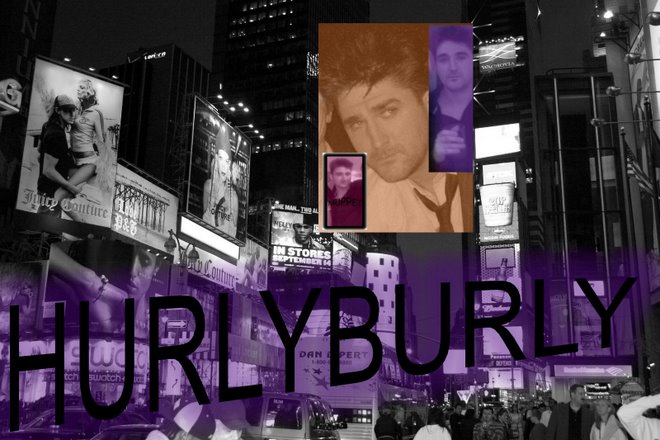


.jpg)




